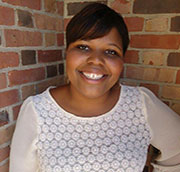by Ralen Robinson
It’s okay not to be okay.
The other day I was in Trader Joes getting groceries when I ran into someone I knew. In our conversation, they asked, “How are you doing?” And I responded, “okay.” Yet, that was far from the truth.
I was stressed from work and had a mountain of emails that needed my attention. The store didn’t have the items I needed, and I was annoyed that I would have to go to another store later. It was going to rain, and I left my umbrella by the door, forgetting it in my haste. I got in an argument with a friend earlier that day, and I replayed that conversation in my head. Everything that could go wrong that day did, and I was at my wits’ end and wanted to throw the entire day away. I had a range of emotions. It was not all pretty.
So, when I was asked this question, I responded quickly and easily. Out of habit, I replied, “I’m doing okay.” When I walked away, I realized that my response did not accurately convey my emotions. I left with my bottled-up feelings of frustration and the appearance of being “okay.” But that was a lie.
How many times do we respond with an “okay” when everything is not fine? When everything is falling to pieces, and our emotions are so raw that acknowledging them will lead us to the brink of tears, why do we say we’re fine? Instead of naming and owning our stresses and anxieties, we hide them. We take them out when we’re alone, or with people we are close to. Being okay is acceptable, but sharing one’s emotions, heartaches, and pains can be uncomfortable. If I responded with the truth, I would be afraid that they don’t want to listen, or I that was burdening them with my problems.
We are so used to being put together, that we don’t share our struggles. We put our struggles and pain behind tight smiles. The fear and apprehension of vulnerability is crippling. So, how do we share that side of us and remove the mask that holds those feelings within? How do we pause before we respond and tap into our emotions? We have to have a brave heart to know that it is okay not to be okay. That in this time of uncertainty and pandemic, we are together. Our struggles are not exclusive to us but shared with humanity. We do not have to be shamed or feel burdened. We are not alone.
Psalm 31: 1-2 says, “In you, O Lord, I have taken refuge; let me never be put to shame; in your righteousness deliver me. Incline your ear to me; rescue me speedily. Be a rock of refuge for me, a strong fortress to save me.“
These powerful words are a reminder that we are not alone. Through the Lord, we can find refuge in people and in ourselves.
 David’s plea is a reminder that whatever we are going through, it too shall pass. We don’t have to deal with our stuff silently but can open up to one another. When we do, we might find shared experiences that lead to healing.
David’s plea is a reminder that whatever we are going through, it too shall pass. We don’t have to deal with our stuff silently but can open up to one another. When we do, we might find shared experiences that lead to healing.
It is okay to permit yourself not to be okay and deal with those feelings. We can’t push them away and forget about them. We have to sit in our grief, loneliness, sadness, anxiety, and pain and then name it. We have to be on a first-name basis with our emotions so we can deal with them. For when we experience and process those feelings, we will feel lighter, happier, and calmer. Hardships will occur, and sadness will ache. Pain is inevitable, but so is happiness, joy, and laughter.
The next time your emotions are raw, don’t conceal it with an “okay” or “fine.” Pause before you answer.
Closing prayer:
Gracious Lord, help us be open, honest, and vulnerable with ourselves and with one another. Grant us the strength and courage to share our burdens as well as our highs with each other. To know that we are not alone and that our struggles, pain, and heartache are intertwined in the brokenness in the world. Lord, give us courage that we may share and hold one another in their feelings. Amen.
Discussion questions:
1. How are you doing? What emotions are simmering under the surface?
2. How can you ask people how they are doing and be present for their feelings?
3. How are you being transparent today? How are you showing courage the next time you talk?
 Ralen Robinson is a recent graduate of the United Lutheran Seminary at Philadelphia. She is currently seeking a call as an ordained minister in the ELCA. Ralen believes her faith and a good pair of shoes can take you a long way.
Ralen Robinson is a recent graduate of the United Lutheran Seminary at Philadelphia. She is currently seeking a call as an ordained minister in the ELCA. Ralen believes her faith and a good pair of shoes can take you a long way.
This article first appeared in the July 2020 issue of Cafe (boldcafe.org).


WOW! This is exactly what I needed to hear today. The whole world is experiencing the same kind of trauma with COVID, yet we are still so afraid to acknowledge it to each other. I think this article will give people some much needed emotional permission to be honest to themselves, and especially to others.
Thank you for such an important reminder for our everyday lives…Of the importance of the two way communication of that simple question and answer! It was good for me; now I will FWD it on to a friend who needs the reminder, too!
I’ve tried it but people really don’t want to hear negative emotions. I finally got a therapist just to be able to unload weekly. Then I try to give it over to God.
I really needed this. I realize I am not okay. I don’t mind wearing a mask, but some of my friends do. That really shouldn’t bother me. I know we all look at things differently.
This devotion really helped me, and I will reread it and reread it. Somehow we are going to get through this virus thing. We just don’t know when. God will see us through this.
Thank you so much for this beautiful reflection, Rae. You’re a blessing to our church, and I just love when you write for Bold Cafe. <3
Thank you. I needed these thoughts. So much pain and stress in my life and for people I know. Thank you for the reminder that the bad times don’t last forever.
In mid-life I finally figured out I could respond to “How are you?” with the phrase “Is that a greeting or a question?” With this comment, the person asking could tell that I had more to share than a simple “fine, how are you?” and they could also be in control of where the conversation went from that point. If they had time to listen, we could decide to step outside to a more private place. Or we could make a date for a phone call to follow up. And if they had no time at that moment, they could simply reply “it’s a greeting for now, I will get back with you soon to follow up.”
Another phrase I used to respond was “How much time do you have?” Usually with a wry laugh, because the person will usually know what you mean. And again, you can make plans to chat later if the person is willing to pursue more conversation.
very well said.